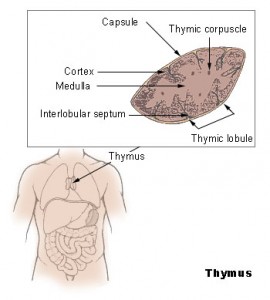Everyone knows the best way to treat allergies is to avoid what causes them, right? Well, according to a recent study that is not the case. But before we go into that, we need to know a little about what allergies really are.
Everyone has heard of them, but what are they really? Generally speaking, an allergy is an over-reaction of the body’s immune system to something that is harmless for most people, such as eggs, pollen, or peanuts. These substances are called ‘allergens’, and the immune responses they cause can do serious harm. More information on allergens can be found in the video below, credit to eMedTv YouTube channel.

So, why do people have allergies anyway? This question stumped scientists until DP Strachan proposed in 1989 that allergies develop primarily from the lifestyle changes of our modern society, such as increased hygiene and cleanliness. This idea has come to be commonly known as ‘the hygiene hypothesis‘. The basic principle of the hypothesis, that less exposure to certain substances causes allergies, appears to hold true under more recent analysis.
Food Allergies cause 200 000 emergency room visits each year in the U.S., with more than 15 million Americans living with food allergies. From 1997 to 2008 the number of reported peanut allergies in the U.S. tripled, breaking three million cases according to Food Allergy Research and Education (FARE). This time period coincided with increasing attempts to lower exposure of children to peanuts. Clearly something isn’t working.
With understanding of allergies, why they arise, and how they affect people, the importance of finding effective treatment methods becomes clear. Using logic that follows from the hygiene hypothesis, one research group may have found a strikingly simple solution.
In a paper published February 2015, Du Toit and associates studied 640 infants, 4-11 months old, that were at risk of developing peanut allergies and separated them into two treatment groups. The first group were exposed to small amounts of peanut butter routinely, while the second group completely avoided peanuts, continuing until 5 years of age. The group with peanut exposure developed peanut allergies with remarkably-less frequency than the second group(1.9% compared to 13.9%).
So what does this mean? Should people start feeding their kids peanuts to avoid a serious allergy? The answer to that is absolutely not. This study was undergone with careful scrutiny by expert physicians to ensure minimal risk. What it does mean, is that allergy treatment is going to be changing in the near future, and hopefully the rate of allergies changes too.
-Dixon Leroux



